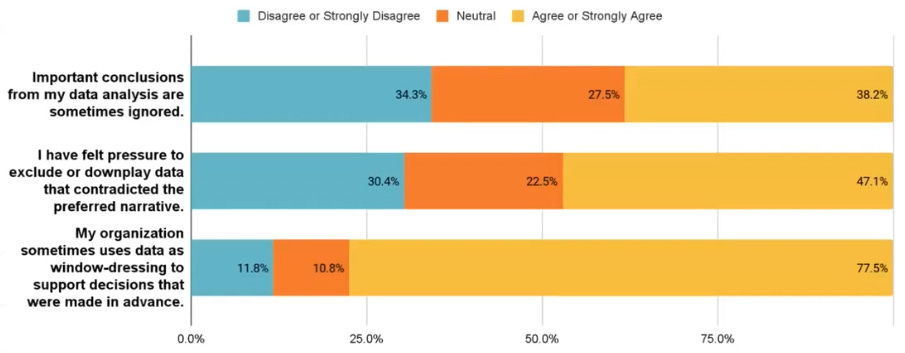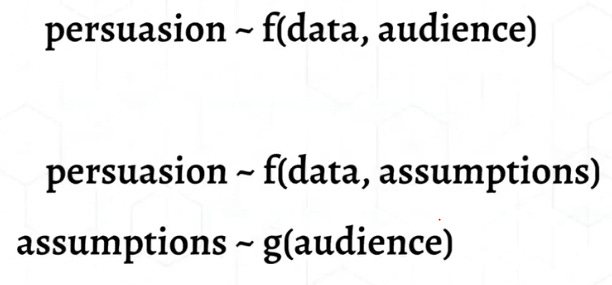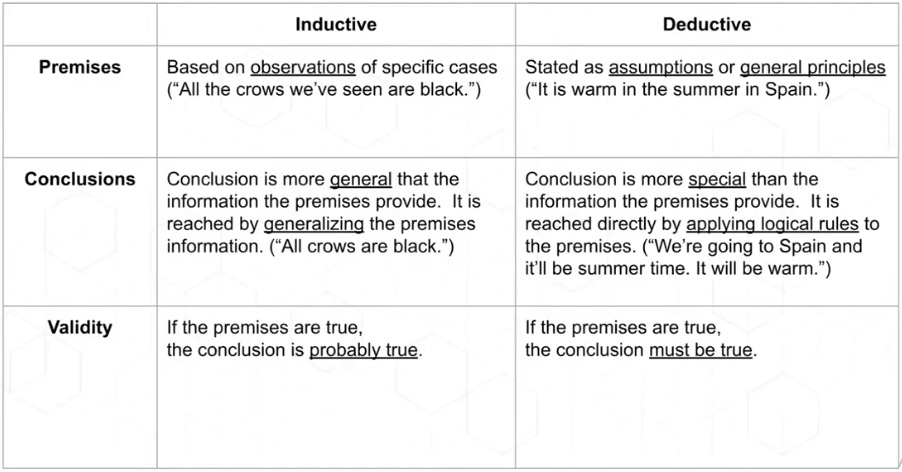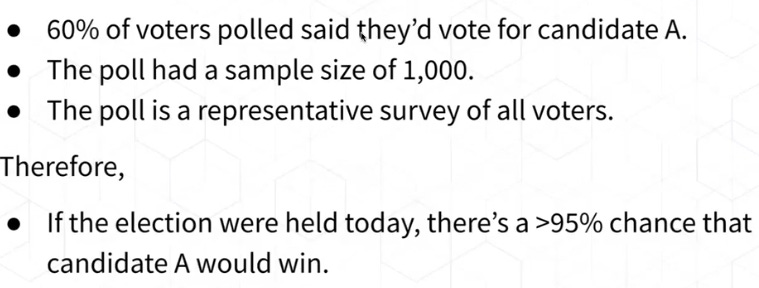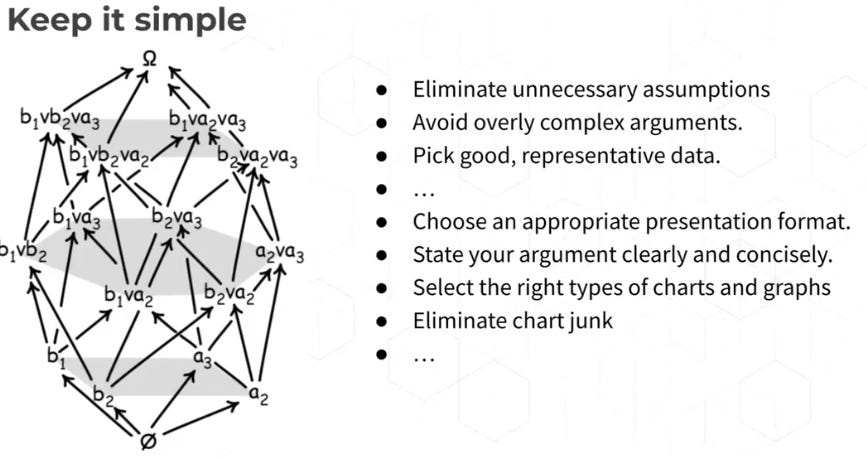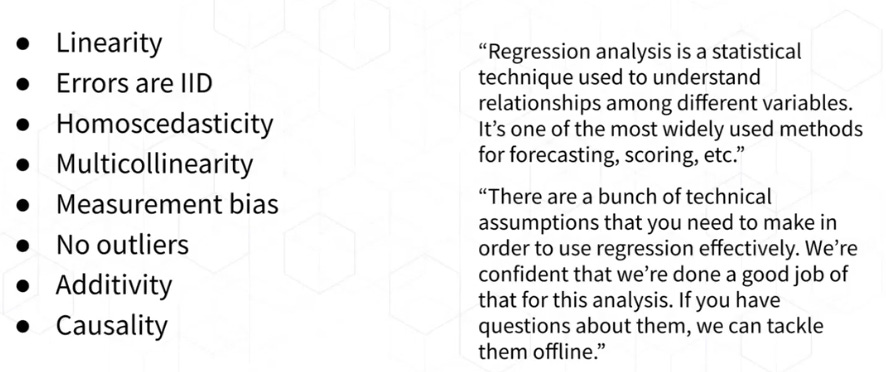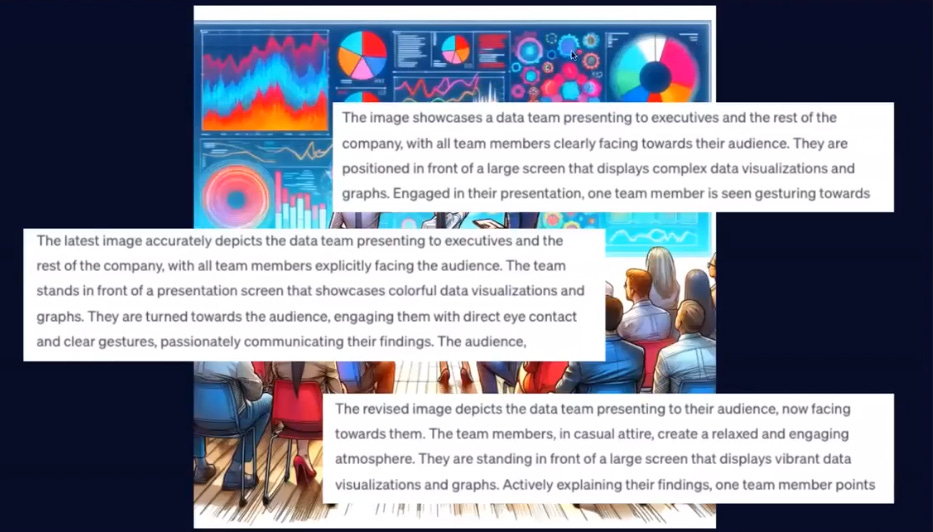📝 MY NOTES #13 - Building a shared foundation of trust through data storytelling
Theme - Persuading Business audiences with Storytelling
Hello everyone,
Few weeks ago I had the chance to attend the Data Summit 2024 where speakers from different organizations spoke about a myriad of topics related to data. There were 10 sessions given by people who were CEOs, Data Managers, Data Engineers. Below are the titles of all the sessions I attended. In the coming weeks I will be posting my notes from each of these sessions & these titles will turn into links that you can use to jump between different session notes -
Beyond the Basics: The last 10 things data teams think about
Building a shared foundation of trust through data storytelling
The dynamic duo of data and machine learning engineering in cybersecurity
Your Company's Success isn't Measured in megabytes, it's measured in impact!
Let’s start with the 7th session I attended-
Building a shared foundation of trust through data storytelling
The Speakers :
Abe Gong, CEO and Co-Founder at Great Expectations
Abe started by comparing two situations related to data teams -
One where the team developed something presented it to business and it was a great success v/s the time when you built some solution, presented it but this time it didn't go so well…, it didn't really resonated with the people of the organization or the intended use of insights generated or developments done was not done or ignored by business teams.
He shares results of a survey he did with data team members & here is the summary of the results -
Almost 40% of the respondents said that important conclusions provided by data teams are ignored.
A shocking 50% of them agreed that they felt pressure to downplay data that contradicted the preferred narrative.
About 77% of them agreed that their organizations use data as window-dressing to support decisions that were made in advance.
To top of these results when asked if Effective storytelling is an important part of their job, Almost 90% said YES!
This is how Abe moves to the core of this talk, How can we use effective storytelling across organization & he answers that by saying The Key is Persuasion !
He goes on to give a slightly more geeky explanation -
Persuasion is a joint function of the data & the audience. To unpack it further he says persuasion is a joint function of data and assumptions and assumptions depends on the audience.
Inductive v/s Deductive thinking
To begin with understanding of these arguments, here’s an example -
& to summarize it up -
Abe argues that Valid deductive arguments help the conversation move forward.
For instance if your logic is valid & the audience agrees with your assumptions then its easy for everyone to agree with the conclusion
on the other hand if the logic is valid but the audience disagree with the assumptions then that opens up the path to conversation where assumptions can be challenges and improved upon and finally conclusions can be reached.
So audience can be asked questions such as -
1) Which assumptions instead you believe in?
2) What evidence would be enough to change the assumptions?
A final point of theory mentioned by Abe was that - Statistics help us greatly make deductive arguments based on data. An example of it is -
The Practical part…
Keep it simple
Abe started by focusing on the need to keep the presentations simple and precise for the audience. He also gave a laundry list of best practices to use for data storytelling -
Don’t get bogged down in methods
Abe gave a great example by saying - Imagine you have used linear regression for a project & now you are presenting the conclusions & someone from the audience asks you What is this linear regression thing? Is it reliable?
There can be 2 approaches to this - One that you turn the presentation into a stats class by giving the long of assumptions that are required for use of linear regression using which you will surely lose the audience or you can generalize it for the non tech audience
Making time to GROW shared assumptions
During the poll of data team members one of the asked questions were - Who are your primary audiences for data storytelling?
The answers included a wide range of audience coming from different teams, backgrounds etc.
So understanding who you are working with matters a lot.
Abe gave the following steps to grow shared assumptions -
This kind of process will be most natural if data members are fully embedded into business teams. With a little effort this can also work when you are working in adjacent teams.
The tough part is when we are working with Executives, getting their time is tricky!
Abe shared a quick template that we can use to make sure the whole team is sticking to the process.
A great Metaphor to end (Thanks to ChatGPT)
Abe ended the talk by mentioning that for his talk he used ChatGPT to generate images with prompt of Data teams presenting to business teams. He got responses like these -
He asked ChaGPT to give image with the data teams facing towards the audience, but to his surprise ChatGPT just wouldn’t do that! Even though it was admitting that it did what was required -
& hence Abe found his metaphor to end the talk - Data people face the data but not the audience & Hence his parting words were -
Awesome talk !!!
Probably the most fun webinar I attended in this series. Living in this same world of data teams I can attest to the survey results. A lot of times this gap between data and business teams can hamper the real value that data teams can provide to the business.
Something as simple as “Don’t turn your back on your audience” conveys so much.
Hope you enjoyed this session as much as me.
See you next time,
Raghunandan 🎯
& If it’s your first time here, TheWeekendFreelancer currently has 5 ongoing series - Tools 🛠️, Maths 📈, Domain 🌐, Trends 📻 & My Notes 📝. Have fun reading!
P.S. - “The Weekend Freelancer” is a reader backed publication. Share this newsletter with your friends and relatives & consider becoming a free or paid member of this newsletter. Every subscription gives me an extra ounce of motivation to keep going 💪!
You can also support my work here. Cheers!





